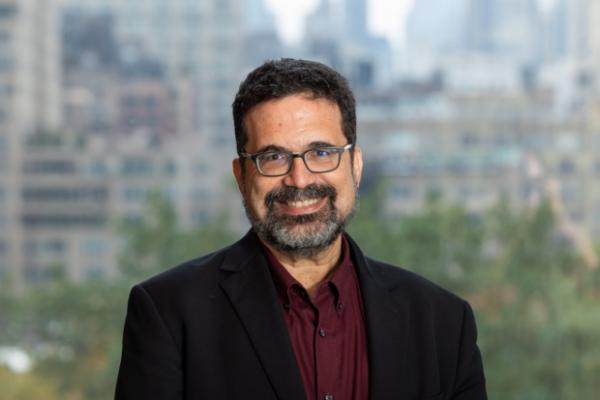
Join CSEEES for our annual Graduate Choice Speaker Lecture. Each year CSEEES' MA students are invited to select a speaker and/or topic of their choice to add to CSEEES' lecture series. This year we will be joined by Eliot Borenstein who will deliver a talk entitled "Tomorrow's Soviet Union Today: The Politics of Time Travel and the Post-Soviet Imagination".
Abstract: In their scathing satirical song “Our Nuthouse is Voting for Putin” (2012), the group Rabfak included a particularly evocative line: “Why is today yesterday and not tomorrow?” With these words, Rabfak diagnosed the post-Soviet condition, at least when it comes to time. The notoriously nostalgia-ridden Putinist years have indulged in endless exercises in the conditional subjunctive: what would the world have been like if the USSR had never collapsed? What would it be like to revive it?
Today’s talk looks at several interrelated phenomena. First, the stories of “popadantsy” (Time Crashers) who accidentally find themselves shunted from the present day into the historical past. Often they end up in World War II, aiding in the Soviet victory, advising Stalin, and even, on one occasion, introducing him to Darth Vader. Sometimes their antics prevent the Soviet collapse, leading to a thriving twenty-first-century USSR.
The USSR in the twenty-first century can serve a variety of ideological and artistic purposes: it can compensate for the lingering sense of defeat and loss stemming from the Soviet collapse; it can serve as a utopian or dystopian alternative to the current order of things; and, perhaps most important, it can estrange the reader and viewer from the actual world around them, making our world seem somehow off thanks to the sheer ordinariness of the constructed alternative Soviet present.
The Time Crashers are joined by the wide range of attempts, both in fiction and in real life, to revive or maintain the fallen Soviet Union in the present day, whether as theme park, stories about Soviet theme parks, or, most famously, Ilya Khrzhanovsky’s years-long film series, exhibits, and experiment in communal living called DAU, which immersed all of its participants (and, eventually, visitors) in the reconstruction of a lost Soviet world.
And, finally, there is the fringe movement of people scattered throughout the former Soviet space who insist that the dismantling of the USSR was illegal and invalid, refuse to pay taxes, and use “Soviet” identity documents. They are the apotheosis of the nation as imagined community: they refuse to see the Russian Federation as a real legal entity, insisting on the existence of the Soviet Union as an act of sheer collective will.
Speaker Biography: Eliot Borenstein is Interim Vice Chancellor and Vice Provost for Global Programs at New York University, where he oversees NYU’s global sites and study away programs.
Eliot joined the Faculty of Arts and Science’s Department of Russian & Slavic Studies (R&SS) at NYU in 1995, and has served as Chair of R&SS, Acting Chair of East Asian Studies, and Director of the College Core Curriculum. He started with the Office of Global Programs as a Provostial Fellow in 2011, working closely with the Global Programs staff, senior leadership and site directors on programmatic initiatives at the global sites. In 2017, Eliot became the Senior Academic Convener for the Global Network where he was responsible for convening the University-wide Faculty Committee on the Global Network (advising senior administration on all global matters); he also continued his efforts in developing programs at the global sites, working closely with Global leadership. Before coming to NYU, he served as a residential director for study-away programs in Moscow and St. Petersburg, and was the director of the Fulbright Program for the Russian Federation.
He is the author of Men without Women: Masculinity and Revolution in Russian Fiction, 1917-1929 (2001 AATSEEL book prize), Overkill: Sex and Violence in Contemporary Russian Popular Culture (2008 AWSS book prize), Plots against Russia: Conspiracy and Fantasy after Socialism (2020 Wayne S. Vucinich book prize and 2020 AATSEEL book prize), Pussy Riot: Speaking Punk to Power (Bloomsbury, 2020), Meanwhile, in Russia…: Russian Internet Memes and Viral Video (Bloomsbury, 2022), Marvel Comics in the 1970s: The World Inside Your Head (Cornell, 2023), Soviet-Self-Hatred: The Secret Identities of Postsocialism (Cornell, 2023), and HBO’s The Leftovers: Mourning and Melancholy on Premium Cable (Lexington Books, 2023). His next book, Unstuck in Time: On the Post-Soviet Uncanny, is currently under review at Cornell, and a second, Harry Potter in Russia: The Politics of Enchantment under Putin, is under review and under contract with Bloomsbury. He is now writing Russian Culture under Putin (under contract with Bloomsbury), as well as Marvel Comics in the 1980s, Unidentified Russian Objects: On Soviet Melancholy and Reading the Superhero: Ethics, Crises, and Superboy Punches.
If you have any questions about accessibility or wish to request accommodations, please contact us at cseees@osu.edu. Typically, a two weeks' notice will allow us to provide access.
